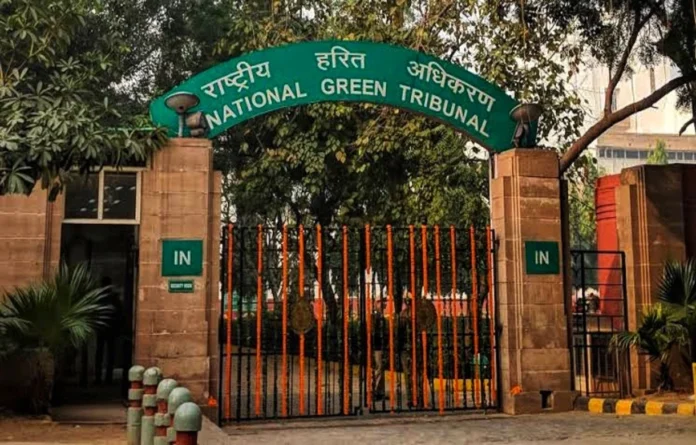The National Green Tribunal (NGT) has issued notice to the Uttar Pradesh government, Prayagraj Mela Authority and the Uttar Pradesh Pollution Control Board (UPPCB) over allegations that inadequate sanitation facilities at the Maha Kumbh Mela 2025 led to open defecation along the banks of Ganga river.
The Bench of of Chairperson Justice Prakash Shrivastava and Expert Member Dr. A Senthil Vel directed the authorities to file their replies one week before the next hearing and listed the matter for further hearing on February 24.
The Tribunal passed the order on an application alleging that lakhs of ordinary people and families were forced to defecate in open on the banks of the river Ganga for want of adequate facilities.
The Bench noted that in support of the plea taken in the OA, the applicant enclosed a pen drive containing the videos.
Filed by one Nipun Bhushan, the petition sought Rs 10 crore in environmental compensation from the Uttar Pradesh government on the ground that the State failed to prevent large-scale pollution owing to poor deployment of sanitary facilities at the Kumbh Mela site.
The petitioner invoked the polluter pays principle, a widely recognised principle in environment law that mandated the polluter to bear the cost of damages caused to the environment.
He submitted that permitting mass open defecation and failing to prevent pollution violated Article 48A of the Constitution, which obligated the state to protect and improve the environment.
The plea contended that despite official assurances of bio-toilets being installed, thousands of pilgrims were forced to defecate in the open due to lack of clean or functional facilities.
Even if the 1.5 lakh bio-toilets deployed were operational, they appeared insufficient to handle the massive influx of people, it added.
The plea mentioned videos recorded by visitors allegedly showing human waste accumulating along the river banks, stating that it raised serious concerns about public health and environmental safety.
The application further cited a November 2024 water quality test, which recorded Fecal Coliform levels at downstream Sangam at 3,300 MPN (Most Probable Number) per 100 milliliters, exceeding the permissible limit of 2,500 MPN/100 ml set by the Ministry of Environment, Forest and Climate Change (MoEFCC).
It said the presence of such contaminants could lead to diseases like cholera, hepatitis A and polio, endangering millions of devotees taking a holy dip in the Ganga.
A report was earlier filed before the NGT by the Central Pollution Control Board (CPCB) revealing alarming levels of Fecal Coliform that made the Ganga’s water unsuitable for bathing.
The petitioner claimed that the UPPCB has not published updated water quality data, leading to questions over transparency.


